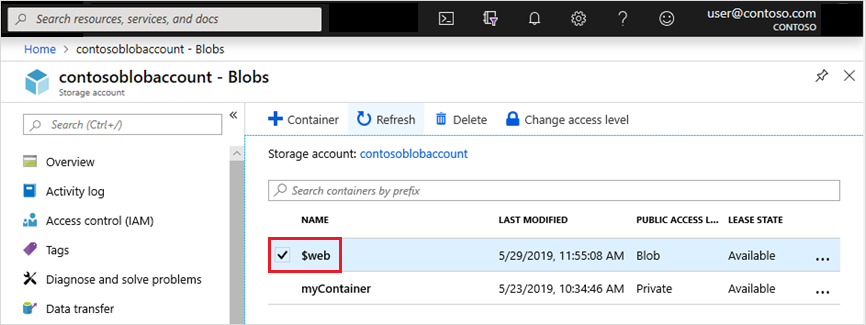SSL impacts web hosting by securing data and boosting trust. It encrypts information, making it safe from hackers.
SSL, or Secure Sockets Layer, is vital for website security. It ensures that data transferred between the server and users stays private. For web hosting, SSL is crucial. It helps protect sensitive information like passwords and credit card details. Besides security, SSL also affects SEO rankings.
Search engines favor secure websites, improving your visibility. Plus, users trust sites with SSL certificates more. They see the padlock icon and feel safe. SSL isn’t just about safety. It’s about building trust and credibility too. Understanding its role in web hosting can help you make informed choices for your website.

Credit: www.elegantthemes.com
Ssl And Web Hosting
SSL and web hosting are essential for any website. They work hand-in-hand to ensure security and reliability. SSL (Secure Sockets Layer) encrypts data between the user’s browser and the server. Web hosting, on the other hand, provides the infrastructure to store and deliver website content. Together, they create a safe environment for users and site owners.
Integration With Hosting
Integrating SSL with web hosting is straightforward. Many hosting providers offer SSL certificates as part of their packages. This makes it easier to secure your website. Once integrated, SSL ensures data sent between the server and user is encrypted. This prevents unauthorized access and protects sensitive information. It also boosts user trust and credibility.
Ssl Certificates
SSL certificates are crucial for website security. They authenticate the website’s identity and enable an encrypted connection. Different types of SSL certificates exist. Domain Validation (DV) certificates are the most basic form. They verify the domain name and are quick to issue. Organization Validation (OV) certificates provide more details about the organization. Extended Validation (EV) certificates offer the highest level of security. They require thorough vetting of the organization. Choosing the right certificate depends on your website’s needs.
Enhancing Security
Enhancing security is a crucial aspect of web hosting. Secure Sockets Layer (SSL) plays a vital role in this. SSL ensures that data transferred between a user and a website remains secure. This not only protects sensitive information but also builds trust with your visitors. Let’s explore how SSL enhances security in web hosting.
Data Encryption
SSL encrypts data sent between the user’s browser and the server. This means that anyone trying to intercept the data will find it unreadable. Encryption ensures that personal information, like credit card details, remains safe.
Without SSL, data is sent in plain text. This makes it easy for hackers to steal information. With SSL, even if data is intercepted, it cannot be understood. This is because SSL uses complex algorithms to scramble the data.
Preventing Cyber Attacks
SSL helps prevent cyber attacks, such as man-in-the-middle attacks. In these attacks, a hacker intercepts communication between a user and a website. SSL certificates authenticate the identity of the website. This ensures that users are communicating with the intended website and not a malicious one.
SSL also protects against phishing attacks. Phishing is when attackers trick users into providing personal information. With SSL, users can see the padlock icon in the browser. This indicates that the site is secure and trustworthy. Thus, users feel more confident and safe.
Boosting Seo Rankings
In the digital age, securing your website with SSL is not just about safety. It also plays a crucial role in boosting SEO rankings. Let’s delve into how SSL impacts your website’s SEO performance.
Google’s Preference
Google has a soft spot for secure websites. It favors sites that use SSL certificates. In fact, Google announced in 2014 that HTTPS is a ranking signal. This means that having an SSL certificate can help your website rank higher in search results.
Why does Google prefer SSL? Because it ensures data protection. It encrypts the data shared between the user and the website. This makes it harder for hackers to steal information. So, by using SSL, you are not only protecting your users but also gaining Google’s trust.
Impact On Search Results
SSL impacts your search results in several ways:
- Higher Rankings: Websites with SSL certificates are more likely to rank higher.
- Increased Visibility: A secure site is more likely to appear on the first page of search results.
- Better User Trust: Users are more likely to visit and stay on a secure site.
Having SSL can reduce your bounce rate. This is because users feel safer and stay longer on secure websites. A lower bounce rate is another positive signal for search engines.
Here is a quick comparison:
| With SSL | Without SSL |
|---|---|
| Higher SEO rankings | Lower SEO rankings |
| Better user trust | Less user trust |
| Data encryption | No data encryption |
As you can see, SSL has a significant impact on your website’s SEO performance. It is essential for any site looking to improve its search engine ranking.

Credit: learn.microsoft.com
Building Trust With Users
Building trust with users is crucial for any website. Trust encourages users to stay and interact. One way to build trust is by using SSL (Secure Socket Layer). SSL helps protect data and gives users peace of mind.
Visual Indicators
SSL provides clear visual indicators in the browser. These indicators include a padlock icon and “https://” in the URL. These simple signs show that the website is secure.
Browsers also display warnings for sites without SSL. These warnings can scare users away. A secured site avoids these warnings.
Here is a simple breakdown of visual indicators:
| Indicator | Meaning |
|---|---|
| Padlock Icon | Site is secure |
| https:// | Data is encrypted |
| Browser Warnings | Site is not secure |
User Confidence
SSL increases user confidence. Users feel safe entering personal information. This is especially important for e-commerce sites.
A secure site reduces the risk of data breaches. Users appreciate this protection. It encourages them to return to the site.
Here are some key points on how SSL boosts user confidence:
- Protects user data
- Prevents browser warnings
- Encourages repeat visits
SSL is a small step with a big impact. It builds trust and confidence among users.
Compliance With Regulations
SSL certificates are crucial for web hosting. They play a significant role in ensuring compliance with various regulations. Without SSL, websites risk penalties and loss of trust. Let’s explore how SSL impacts compliance with specific regulations.
Gdpr Requirements
The General Data Protection Regulation (GDPR) mandates stringent data protection measures. Websites handling EU citizens’ data must comply with GDPR. SSL is essential for this compliance. It encrypts data, ensuring user information remains secure.
GDPR also requires websites to protect data during transit. SSL certificates help achieve this. They encrypt the connection between the user’s browser and the server. This prevents unauthorized access and ensures data privacy.
Industry Standards
Various industries have specific standards for data protection. For example, the Payment Card Industry Data Security Standard (PCI DSS) is vital for e-commerce sites. PCI DSS requires SSL for secure online transactions.
Healthcare websites must comply with the Health Insurance Portability and Accountability Act (HIPAA). HIPAA requires SSL to protect patient data. Other industries also have similar standards. SSL helps websites meet these requirements and avoid penalties.
To summarize, SSL is not just an option. It is a necessity for compliance with regulations. Websites without SSL risk penalties and loss of user trust. Ensure your website has a valid SSL certificate to stay compliant and secure.
Improving Website Performance
Improving website performance is essential for user experience and SEO. One way to achieve this is by using SSL (Secure Sockets Layer). SSL not only secures your website but also enhances its performance. Let’s explore how SSL can improve your website’s speed and efficiency.
Speed And Efficiency
SSL improves website speed by using modern protocols. These protocols are designed for faster data transfer. SSL also allows for better server optimization. This means your website can handle more traffic without slowing down.
Efficiency is another benefit of SSL. Encrypted data is processed more quickly. This reduces the load on your server. As a result, your website runs more smoothly and efficiently.
Ssl And Load Times
SSL can significantly reduce load times. Encrypted connections are prioritized by browsers. This means your website will load faster for users. Faster load times lead to better user experience.
SSL also helps with content delivery. Encrypted data is easier to cache and deliver. This further reduces load times. Users can access your content quickly and easily.
Improved load times can also boost your SEO rankings. Search engines favor websites with faster load speeds. So, using SSL can help your website rank higher in search results.
Choosing The Right Ssl Certificate
Choosing the right SSL certificate is crucial for any website. SSL certificates help in securing data between the user and your site. They build trust and ensure data protection. But with various options available, selecting the right one can be confusing. Let’s break down the different types and factors to consider.
Types Of Ssl Certificates
There are several types of SSL certificates. Each serves a different purpose:
- Domain Validation (DV) SSL: This is the simplest form. It verifies that you own the domain.
- Organization Validation (OV) SSL: This provides a higher level of security. It requires verification of the organization’s identity.
- Extended Validation (EV) SSL: This is the most secure. It involves a thorough vetting process and displays a green address bar in browsers.
- Wildcard SSL: This covers a domain and all its subdomains. It is useful for websites with multiple subdomains.
- Multi-Domain SSL: This can secure multiple domain names with one certificate. It is ideal for businesses with several websites.
Factors To Consider
Several factors help in choosing the right SSL certificate:
- Level of Validation: Decide the level of security needed. For basic sites, DV SSL may suffice. For e-commerce or sensitive data, consider OV or EV SSL.
- Number of Domains: Determine how many domains or subdomains need protection. Choose between Wildcard or Multi-Domain SSL based on this.
- Price: SSL certificates vary in price. Choose one that fits your budget but does not compromise on security.
- Brand Reputation: Choose a certificate from a trusted Certificate Authority (CA). Reputed CAs offer better support and reliability.
- Browser Compatibility: Ensure the SSL certificate is compatible with all major browsers. This ensures a seamless experience for your users.

Credit: digichefs.com
Frequently Asked Questions
What Is Ssl In Web Hosting?
SSL (Secure Sockets Layer) encrypts data transferred between users and websites. This ensures secure communication and protects sensitive information.
How Does Ssl Improve Website Security?
SSL encrypts data, preventing hackers from intercepting it. This protects user information, such as credit card details, enhancing overall website security.
Does Ssl Impact Website Speed?
Yes, SSL can slightly impact website speed. However, modern SSL certificates and servers minimize this impact, ensuring faster loading times.
Why Is Ssl Essential For Seo?
SSL is essential for SEO because search engines prioritize secure websites. Websites with SSL certificates often rank higher in search results.
Conclusion
SSL plays a crucial role in web hosting. It ensures data security and builds trust. Websites with SSL improve SEO rankings. Visitors feel safe and stay longer. SSL certificates are now a must-have. They protect both site owners and users.
Choosing SSL benefits your website greatly. Boost your site’s credibility today. Secure hosting is not optional anymore. It’s essential for success.

